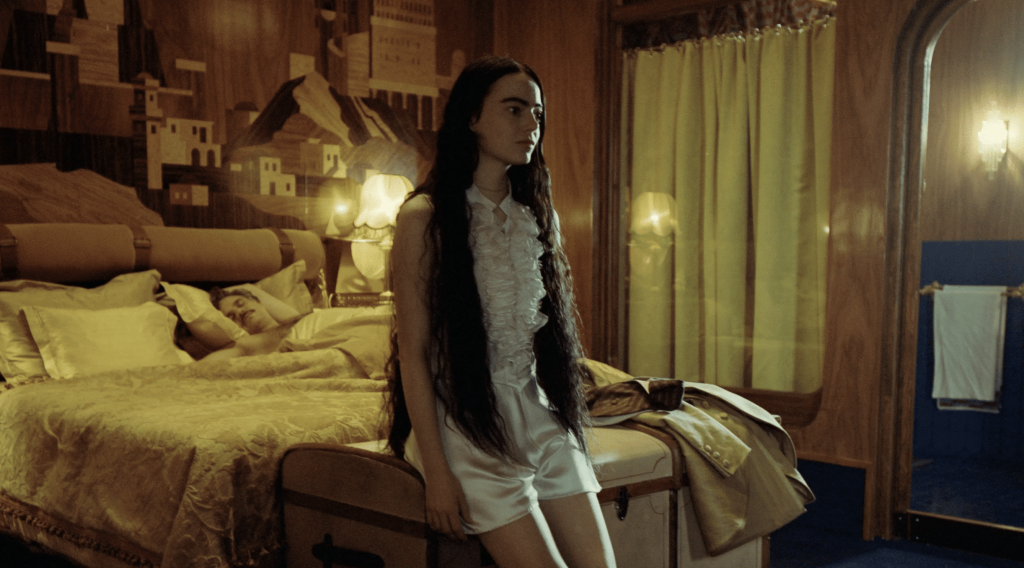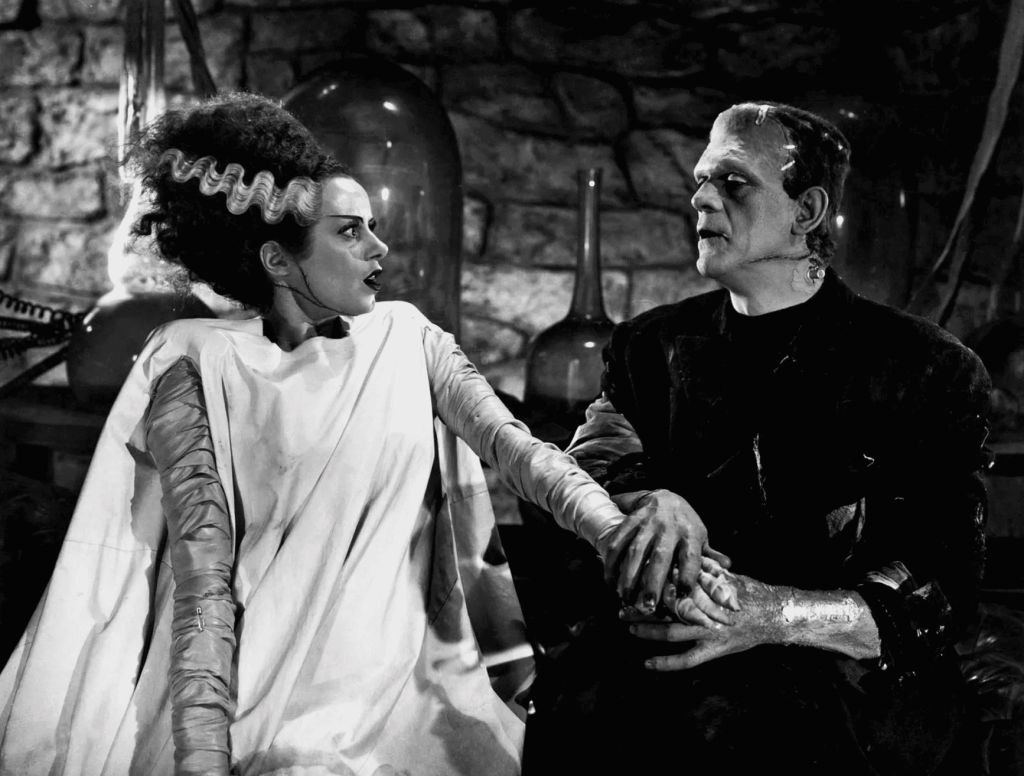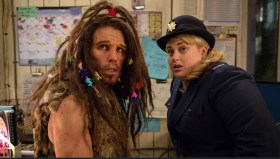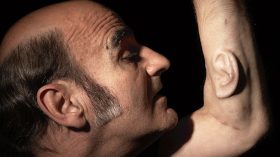Since it was published in 1818, Mary Shelley’s Frankenstein; or, the Modern Prometheus, widely held to be the first science fiction narrative, has been adapted and adapted and adapted.
There are at least 15 feature films, but if you include plays, short films, parodies, and homages, the number is practically uncountable. The current pop culture vision of Frankenstein and his monster comes from not just the novel, but James Whale’s 1931 film adaptation, in which Colin Clive’s frantic ‘it’s alive!’ monologue and Boris Karloff’s lumbering yet sympathetic performance set the tone for adaptations to come.
More than 200 years after the novel’s publication, it’s still alive. Not only are there new direct adaptations, but original stories that are clearly, deliberately, and proudly in the novel’s shadow. 2023 saw the release of Birth/Rebirth (Laura Moss) and Poor Things (Yorgos Lanthimos), while this year will see the release of Zelda Williams’s feature debut Lisa Frankenstein, written by Diablo Cody, and the start of production on Guillermo Del Toro’s Frankenstein project. So what is it about Frankenstein that is still exciting to filmmakers and audiences alike?
A popular reading of the story is that it is about Victor Frankenstein’s hubris in attempting to play god, and there is definitely an enduring appeal to seeing someone face the consequences of their own actions. Richard King in The Guardian, and Jill Lepore in The New York Times, each came to another conclusion.
Victor Frankenstein is not just on an ego trip, he is the product of a STEM education that rejected the humanities. He saw life in strictly biological terms, breathing lungs and pumping hearts, but a sociologist could have given him more to think about. Would he send his creature to school? What if he gets lonely? Frankenstein reminds me what’s so important about medical ethics committees.
Birth/Rebirth
Scientific ethics are at the heart of Birth/Rebirth. Director Laura Moss at first positions the audience to be horrified by this film’s Frankenstein, Dr Rose Casper (Marin Ireland). Rose is abrasive and direct to the point of rudeness, so when it’s revealed that she is testing her ‘cure’ for death on the stolen body of a dead child, Lila Morales (A. J. Lister), we expect her to be driven purely by self-importance. Lila’s mother, Celie (Judy Reyes), certainly thinks so at first, but her disgust at Rose’s experiment is tempered by hope that maybe her child will live again.

Birth/Rebirth. Image: IFC Films.
In becoming Rose’s assistant, Celie learns that Rose is not the monster she expected. In fact, most of Rose’s behaviour stems from an unwavering moral code, and her main concern is that the experiment is ethical and repeatable. At first, Celie’s love for Lila seems to improve Rose’s work, but as the film progresses, Celie frightens Rose with how far she is willing to go to source placental tissue for the serum that keeps Lila alive. Neither Rose nor Celie were driven by Dr Frankenstein’s ego, but could a mother’s love be just as dangerous?
Poor Things
Maybe this is why Frankenstein has endured. Even for those of us with no interest in playing god, I think we’ve all wanted to bring someone back from the dead, whether a dear friend as in Buffy The Vampire Slayer (S06E01 ‘Bargaining’, 2001), or a beloved pet as in Tim Burton’s Frankenweenie (1984, 2012). Losing a loved one feels so unfair, so wouldn’t you fix it if you could?
Read: Jacob Elordi will be Frankenstein’s monster
While Birth/Rebirth examines the scientist’s ethical responsibility, Poor Things is interested in the experience of the reanimated. Based on the novel by Alasdair Gray, Poor Things is the story of Bella Baxter (Emma Stone), who was fished out of the river in which she attempted to end her life and reanimated through a process that leaves her a blank slate, taking in the whole world with fresh eyes. Endlessly curious, she sets out on a journey to discover the world and her place in it.

Poor Things. Image: Searchlight Pictures.
Bella defies every role her restrictive Victorian society assigns her. Godwin ‘God’ Baxter (Willem Dafoe), the scientist who brought her back to life and definitely picked his own nickname, thinks of her as an experiment who must be confined to the laboratory, but Bella proves she is her own person by leaving on an adventure with the incorrigible cad Duncan Wedderburn (Mark Ruffalo).
Bella finds some freedom with Duncan, who admires her free spirit, but his attitude turns sour when her spirit is also free when he’s not around to enjoy it. Even Bella’s pre-reanimation life was filled with people telling her what she is. ‘Women are made to be mothers,’ says Alfie Blessington (Christopher Abbott) in a promising bid for the title of this film’s Most Punchable Man.
Read: Poor Things review: a fabulous feminist odyssey
Bella reminds me of the titular Bride (Elsa Lanchester) in Bride of Frankenstein (1935), a sequel with the rare honour of being as iconic as the original. When the Bride is introduced to the monster – the man she was made for – she is not impressed, screaming and flinching away when he tries to take her hand (to his credit, the monster understands consent and doesn’t try again).

What Bella’s journey of self-discovery makes clear is that whatever she was made for is irrelevant. She looks to everything she is for and, like the Bride before her, responds with a resounding ‘no thank you’.
I’m not the product of a mad scientist (to my knowledge) but, like Bella, I often look at the world, at the rules of polite society, at the injustices that seem baked into its very fabric, and want to say ‘no thank you’. Poor Things is a narrative that begins by reanimating the dead, and then asks if even death is not as permanent as it seems, what else can we change?
Frankenstein is a tale that is both extremely specific and highly malleable. Just like its protagonist, who stitched together a bunch of corpses to create a living being, anyone telling a Frankenstein story now can stitch together all their concerns and fears into a fresh take on a 200-year-old novel.
Whether driven by love, curiosity, or a revolutionary spirit, Frankensteins and Frankenstein’s Monsters seem to be here to stay, and I, for one, welcome whatever shambles onto the screen next.
Poor Things is in cinemas now; Lisa Frankenstein is released in US cinemas on 9 February (Australian release date TBC).





